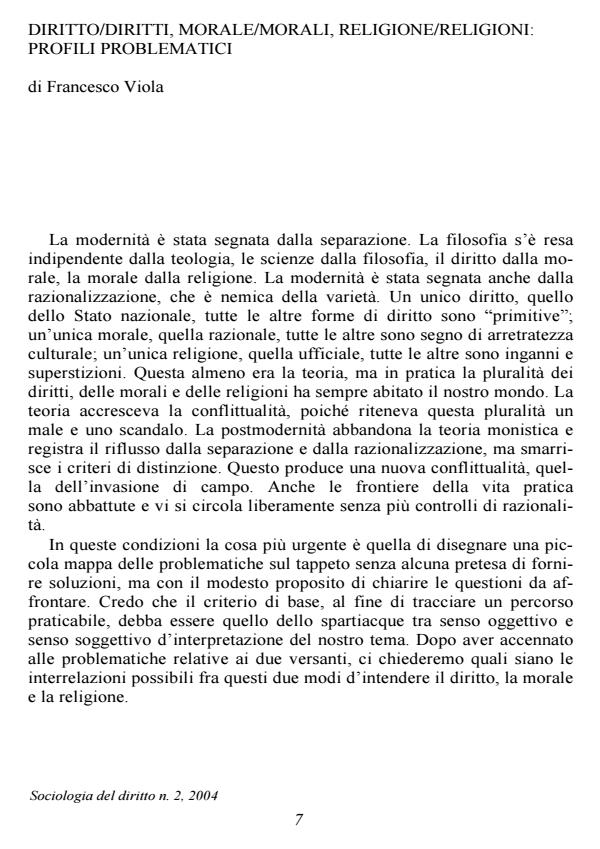Diritto/diritti, morale/morali, religione/religioni: profili problematici
Titolo Rivista SOCIOLOGIA DEL DIRITTO
Autori/Curatori Francesco Viola
Anno di pubblicazione 2004 Fascicolo 2004/2
Lingua Italiano Numero pagine 15 P. Dimensione file 52 KB
DOI
Il DOI è il codice a barre della proprietà intellettuale: per saperne di più
clicca qui
Qui sotto puoi vedere in anteprima la prima pagina di questo articolo.
Se questo articolo ti interessa, lo puoi acquistare (e scaricare in formato pdf) seguendo le facili indicazioni per acquistare il download credit. Acquista Download Credits per scaricare questo Articolo in formato PDF

FrancoAngeli è membro della Publishers International Linking Association, Inc (PILA), associazione indipendente e non profit per facilitare (attraverso i servizi tecnologici implementati da CrossRef.org) l’accesso degli studiosi ai contenuti digitali nelle pubblicazioni professionali e scientifiche.
This subject can be tackled from either an objective or a subjective viewpoint. In the former sense law, morals and religion are traditionally conceived of as normative systems, with a sense of unity that has now been dissolved by a process of fragmentation the plurality of sources in law and morals, brought about by the multiplication of primary principles that may not always be reciprocally compatible, and trends toward the privatisation of faith in religion. In the latter sense, rights have been multiplied under the pressure of the human rights movement, there has been a rise in sectorial systems of morals that all demand total commitment and, finally, official religions have become so mixed as to generate personal religious conceptions. Relativism is the philosophical kernel common to all such fields of everyday life. The paradox stressed by the author is that, whereas the objective sense of the question leads to relativism, its subjective sense tends to point towards anti-relativism.
Francesco Viola, Diritto/diritti, morale/morali, religione/religioni: profili problematici in "SOCIOLOGIA DEL DIRITTO " 2/2004, pp , DOI: